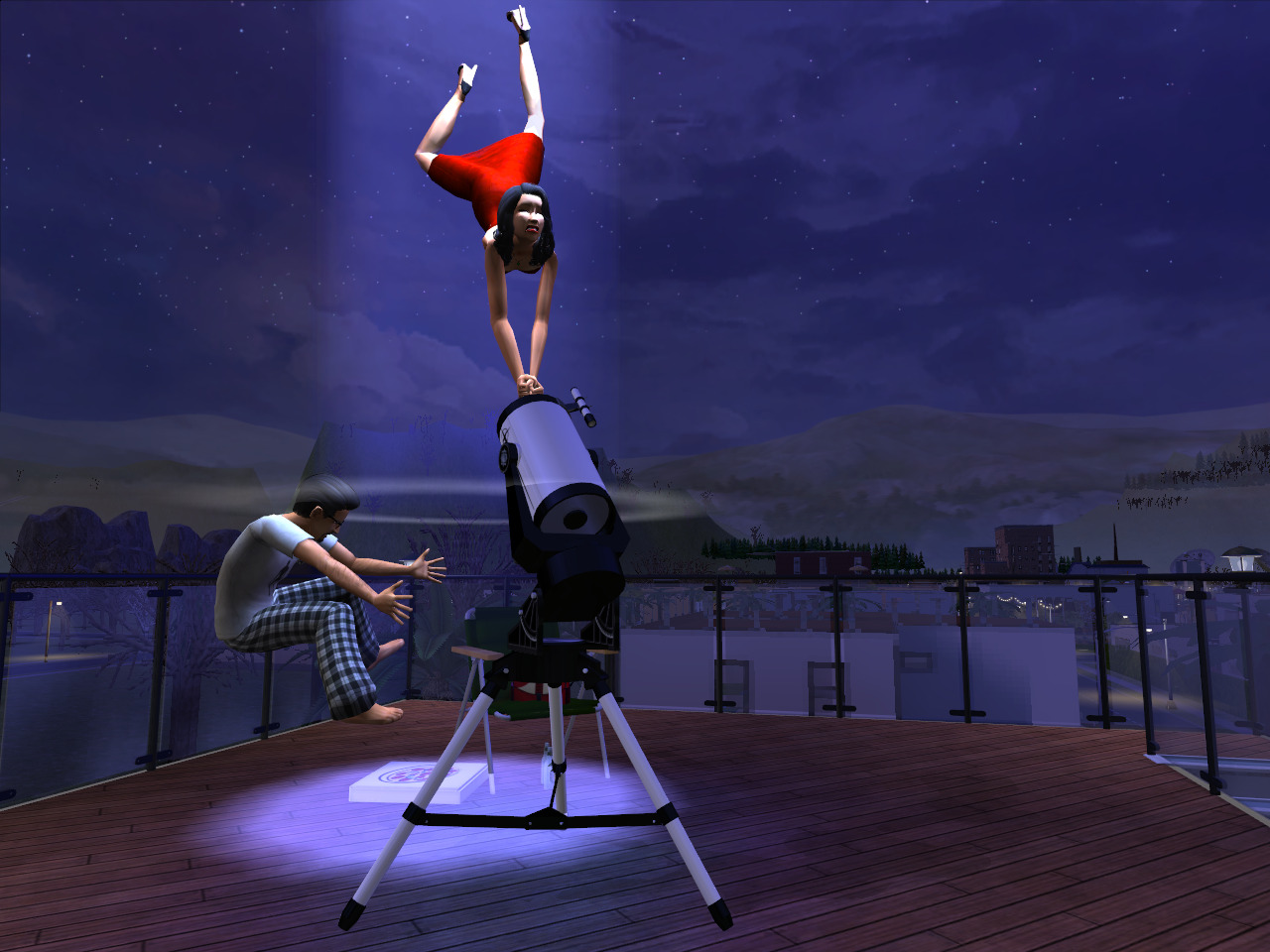Last time, we spoke about random encounters: how they're presented in The Sims, how they're presented in tabletop roleplaying games, and how we could approach them a Sims-like TTRPG. Essentially, through quest hooks. Things don't just happen for no reason, they happen because there's a story to be told, if the players seek it out.
For instance, we could include burglars, and incentivise players to track down the burglar to recover an item that was lost, and then throw in a moral conundrum to make recovering that item not as easy as it might appear.
To accomplish this to a degree I'd consider actually fun to play, the game world needs to have strong worldbuilding. It needs to be reactive, as well. I don't mean "the NPCs all sit around and do nothing until you come along, and then they react to how amazing you are", the world should exist on the verge of bubbling over. If the heroes don't come along, events should still unfold, but maybe the heroic thing to do is to guide events in a certain direction, or minimise harm to people who maybe aren't legendary heroes chosen to save the world? And the world and the people in it can then react to those choices, but the important thing is that they should also--even primarily--react in terms of making their own choices.
In the Fireside Chat for Arc 1 of The Wizard, the Witch, and the Wild One, Brennan Lee Mulligan sums up the kind of worldbuilding I enjoy really really well (jump to about the 19-minute mark):
The Sims accomplishes this primarily through player choices and consequences. Yes, it has choices and consequences! They're not always particularly meaningful choices, nor are they the most reactive consequences, but it's got them, and it's something I'd like to discuss.
For the choices, we first need to look at the way in which these choices are contextualised. Which brings us back to worldbuilding. This is the framework that allows players to make choices, but is also the way in which the events of the world unfold without player input.
In the Sims series, this is mostly set up prior to the events of the game starting. In The Sims 2 in particular, this setup is really strong. You jump into the game, and things happen. You're starting the game in media res, right in the middle of the action. Your choices can divert things from the intended outcome, but for the most part, all you can do is watch as the story unfolds.
Worldbuilding in The Sims, By Which I Of Course Mean The Disappearance of Bella Goth
Okay. So. In The Sims 2 in the neighbourhood of Pleasantview, everybody is sleeping together.
Don is sleeping with Kaylynn, Nina, Dina, and Cassandra.
Kaylynn is sleeping with Don and Daniel.
Dina is sleeping with Mortimer.
Cassandra is sleeping with Don and Darren.
It's messy and I love it!
Pleasant Sims, over on Youtube, has posted a video that shows exactly what this mess looks like in-game (seen above). This is "the world on the verge of bubbling over" that I was talking about. These events are HAPPENING, and you can guide them one way or the other, but it's like a freight train. You can only influence it so much.
But, what if I told you it doesn't stop there? Bella Goth, wife of Mortimer, was recently seen on the roof of Don's condo (scandalous!), and Dina is trying to marry into the Goth family to get at Mortimer's fortune.
Oh, and Bella Goth is missing.
A popular fan theory posits that Nina and Dina conspired to frame Don for Bella's disappearance, and then had their family abduct Bella.
Oh, and by "abduct", I mean with a flying saucer.
But The Sims 2? Oh man, The Sims 2 oozes with roleplaying potential.
When enough of a Sim's Wants go unfulfilled and enough of their Fears are fulfilled, a Sim goes into what the game terms "Aspiration Failure".
Ultimately, these consequences are all roleplaying ones. The Sim's mood never suffers (the thing that determines success or failure for most random events and Sim/object interactions), but the people around him treat him differently, and you, the player, are given a storytelling prompt.






Comments
Post a Comment